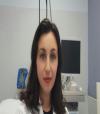Is Chronic Liver Disease Fatal?

1.Post cholecsytectomy status.Presented with jaundice.
2.No evidence of any biliary obstruction.
3.Significant upper abdominal lymphadenopathy.
4.Changes of liver parenchyma suggestive of chronic liver disease.
5.Ill-defined T2 hyperintense parenchymal signal in right lobe liver parenchyma suggestive of inflammation?cause She has been pescribed urbex,Ursocol,Sompraz and has been asked to have a check up again after one month.However am worried about her based on the points 3,4 and 5 in the impression list of the MRCP.Will taking Ursocol be enough?Is chronic liver disease fatal?Is there any chance of recurrence of the calculi in the hepatic duct?
Please follow the suggestions below..
Detailed Answer:
Hi and thank you for asking!
I read carefully all your concerns and I can say as follows:
1. I can see that indirect bilirubine level is slightly elevated 2.0.Hight indirect bilirubine level is not indicative for obstructive jaundice but it is indicative for hemoglobin disease. The most common cause of high indirect bilirubin level is Hemolytic anemia or thalasemia/sickle cell anemia. I noticed too that she has anemia (Hb 8.3 and HCT 27) , so it is important to know which is her hemoglobin disease?
It can explain a part of her symptoms.
2. At point 5 of MRCP report is told about ill defined hyper-intense parenchymal signal, suggestive for inflammation.
On the other hand at her blood work she has high WBC count and high neutrophyles. Both of them are signs of bacterial infection and inflammation. Inflammation can increase lymphadenopathy and explain point 3 of MRCP report.
If she were my patient I would recommend starting an aggressive antibiotic treatment. After that I would recommend to check up again.
3. With regards to chronic liver disease. It may be related with chronic biliary disease. I noticed that her platelet count and liver panel reports were normal.
This is why I can say that her chronic liver disease is mild and not a fatal finding.
4. Is there any chance of recurrence of the calculi in the hepatic duct?
Yes, unfortunately the calculus on hepatic duct can be formed again. I agree with your doctor about the ursocol use, it will prevent calculus formation in hepatic duct.
Hope it was helpful to you!
Wish your mother fast recovery
Dr.Klerida

Is there any way to stop the recurrence of the calculi,besides taking ursocol?i am afraid that recurrence of the calculi might affect her liver in the near future.
For the inflammation,what diet should she follow?The doctor that we visited for her treatment suggested her to have a normal diet.
Also,after her treatment an ultrasound was done in which again it detected a calculi in the right hepatic duct.But then after the ultrasound,when an MRCP was conducted no calculi was found and the doctor said that the calculi might have been mistaken for a small mass in the hepatic duct and to not worry.It did make us worry as whether to believe in the ultrasound test or the MRCP. What do u suggest about it?
Following advice.
Detailed Answer:
Hi back,
Patients like your mother suffering from hemoglobin E disease has an increased risk to develop hyperbilirubinemia and biliary sludge stones.
With regards to intra hepatic biliary infection (or liver infection) I would suggest to take antibiotic therapy.
If she was my patients I would have recommended to take metronidazole and ciprofloxacin.
At the end I would like to say that MRCP is more accurate (and more trustable) than abdominal ultrasound.
Wish you health!
Dr. Klerida
Answered by

Get personalised answers from verified doctor in minutes across 80+ specialties



